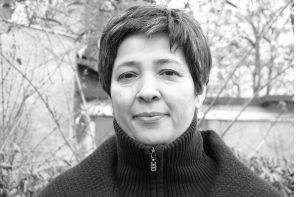Let’s try this again.
That’s the official word from the Archbishops’ Council of the Church of England on the question of women’s ordination as bishops, which was voted down November 20 by the Church’s General Synod and will now receive a rehearing no later than July 2013.
Their statement reflects broad dismay and disbelief that “No” votes prevailed the first time around. And it may also signal an institutional pushback against a numerically and organizationally ascendant evangelical conservative minority that counts among its numbers incoming Archbishop of Canterbury Justin Welby.
“The dominant feeling we have is that a terrible injustice has been done; that real democracy has been violated: 42 dioceses out of 44 voting in favor; the vast majority of people in the Synod voting for women bishops; and yet because this vote required a two thirds majority in all three Houses, the vote failed by six votes in one of the Houses of the General Synod,” wrote the Rt. Rev. Mike Hill, Bishop of Bristol, in an address delivered December 1.
“Where women are suppressed, denied education and denied their leadership roles, the development of that country is inhibited and held back,” Hill continued. “It would be unfair to suggest that all the problems of the Church of England would be sorted had we proceeded to allow women into the episcopate, but some of them would. I wholeheartedly believe that the ministry of the Church of England will remain underdeveloped until we get women bishops.”
Meanwhile, self-described supporters of women bishops who voted “No” on their ordination explained their position to the Times of London as an effort to win stronger protections for Anglo-Catholics and evangelical Anglicans who oppose ordination on theological grounds.
And yet push a bit deeper into the concern for preserving space for minority perspectives and what emerges, really, is a concern for numbers.
As one of the authors of the Times letter, Tom Sutcliffe, wrote elsewhere, “I absolutely do not want to see the Church of England ending up as a result of our in my view correct determination to include women in the ordained ministry at all levels with an even smaller footprint. I do not want the Church to vote to shrink more, and there is no doubt that the ordination of women has not had the entirely positive effect that was anticipated. It has not led to an increase in the membership or the effectiveness of our church, however good most women priests have been. The decline in numbers and in status and in the respect in which we are held by ordinary citizens who are not active members has become precipitate.”
The Church of England’s attendance plunged between 1970 and 2000 and has since stabilized at roughly 1.7 million attending once a month.
And women were first ordained in 1994.
Perhaps women priests can be forgiven for not turning the 1400-year-old ship around after just 18 years on the top deck—not even at the helm, mind you, for that would require ordination to the episcopacy—just no longer under the deck.
And for their next act, perhaps they can turn water into wine. Part the sea. And solve the Palestinian crisis.
History is on the side of gender equality. And, to be frank, history is also on the side of shrinking church attendance and affiliation. Everywhere. Those of us left in the pews tend to be strongly convicted liberals or strongly convicted conservatives, united by our love of convictions, rules, and magic. It won’t be easy for any denomination to keep it all together going forward.
All eyes will be on the Church of England as it tries, again, this coming July.




